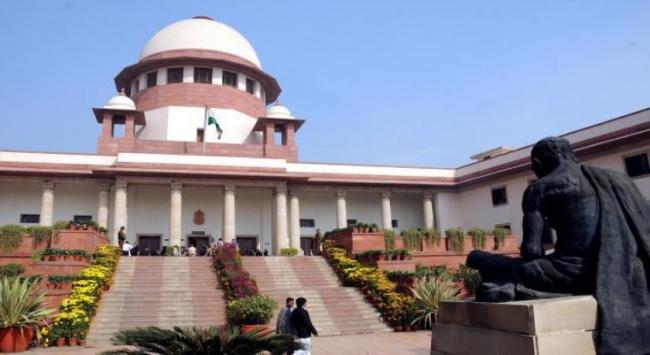SC puts on notice states, UTs that failed to file responses on plea seeking free sanitary pads for school girls

New Delhi, July 24 (IANS) The Supreme Court on Monday put on notice the states and UTs which did not file their response on formation of a uniform national policy on menstrual hygiene for girls studying in schools.
A bench comprising of Chief Justice of India (CJI) D. Y. Chandrachud and Justices J. B. Pardiwala and Manoj Misra warned that continued failure to comply with its direction will result in coercive action against the erring states and UTs after it was informed by the Centre that only four states have submitted their response till date.
The bench was hearing a plea seeking direction to provide free sanitary pads to girls studying in Classes 6 to 12 in government schools across the country.
Additional Solicitor General Aishwarya Bhati, representing the Centre, informed the apex court that only Delhi, Haryana, West Bengal, and Uttar Pradesh had filed their replies with the Union Health Ministry so far.
"Failure to comply with the court's order within the specified time will force us to use the coercive arm of law," recorded the top court in its order.
However, on suggestion made by the ASG, the court allowed the remaining states and UTs to file their response by August 31.
Earlier, the Supreme Court had appointed the Union Health and Family Welfare Secretary as the nodal officer to coordinate with all the states and UTs to develop a national policy in connection with menstrual hygiene for girls studying in schools.
It had also asked the Central government to formulate standard operating procedures (SOPs) and develop a model for all states and UTs in the nation.
The plea filed by Jaya Thakur, a Madhya Pradesh-based doctor, said that adolescent females between the age group of 11 and 18 years, who come from poor backgrounds, face difficulties in receiving education on account of lack of access to education, which is a right under Article 21A of the Constitution and it is free and compulsory under the Right to Education Act, 2009.
"These are adolescent females who are not equipped with and are also not educated by their parents about menstruation and menstrual hygiene. The deprived economic status and illiteracy leads to prevalence of unhygienic and unhealthy practices which has serious health consequences; increases obstinacy and leads to eventual dropping out from schools," added the plea.
Disclaimer: This story has not been edited by the Sakshi Post team and is auto-generated from syndicated feed.




